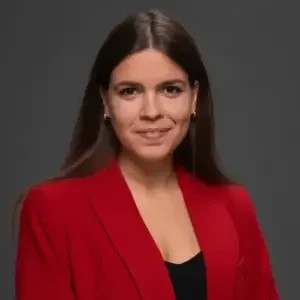In most consulting books, state that in a candidate-led interview, the solving of the case should be Hypothesis based. Should I state my hypothesis out loud, when I show the interviewer my structure, or should I just set up a hypothesis for myself and test it, without having stated it to the interviewer?
Hypothesis in Case Interview


Hi there,
Please be very careful with hypotheses.
In my coaching experience, it's best to not even think about hypotheses until you're an advanced caser.
Why?
Because too many people confuse hypothesis with “guess”.
Also, hypotheses happen throughout the case. You don't just go “I think profits are falling because our prices are too low”.
Make sure your hypothesis does not replace your framework.
Additionally, having a singular hypothesis is generally wrong. Rather, you should have a hypotheSES driven approach.
Let's try an example. Could you please tell me what your 2 hypotheses would be from this real bain prompt (and then tell me how that helps you create your framework)? There are only 2 right initial hypotheses:
Gamma is a leading regional insurance carrier in Australia that has been experiencing declining profits, from $100M to $50M over the last year.
- Revenues have remained steady at $450M.
- Most people do not have dental insurance (only 1M out of 6M in Gamma’s state do, and Gamma has captured all of them).
- Gamma’s customers pay $450 per year for unlimited dental services.
- 1 year ago, Gamma decided to partner with a low-cost chain of dental clinics called Happy Smiles. HS ha s agreed to fixed, low rates for Gamma. Gamma has been directing all customers to HS for their needs. There was a significant marketing campaign publicizing the partnership.
Key questions: Why have profits declined, and what can Gamma do to reverse the trend?
EDIT: ANSWER (More readable response to Tyrion)
Hey Tyrion. Not bad :). You're super close (and I can see why you're ex-MBB!).
Hypothesis 1, as you note is the marketing push raised costs. Hypothesis 2 (you're close) is that the new partnernship is causing issues (that "simple"...could be more costs, could be customer churn, etc.). We have to keep the hypotheses directly tied to the case.
On your framework: close BUT you CANNOT ignore Revenues. Costs seem to be the problem, but the SOLUTION isn't just in fixing marketing and fixing the partnership. The FRAMEWORK should be fixing those issues AND lowering other costs AND raising revenues. This is exactly the point I'm trying to make...hypotheses are NOT the same as framework but they should influence the framework. Love your answer by the way. Your thinking is strong :)
Another Example:
Your partner/spouse has lost their job. Your hypothesis is because they were lazy at work and didn't do their job right.
Is your framework/solution to get them back to that exact same job? Of course not!
Is your framework/solution only to get them in a job again? Of course not!
Your framework/solution is to raise their income (job, side hustle, etc), increase your income (2nd job, promotion, etc.) AND cust your expenses.
Hypothesis does not equal solution/framework

Hello Dear,
very good question. Thanks!
Generally speaking it would be ideal to state your hypothesis out loud. This for 3 main reasons:
1) It helps you to take a direction around which building your reasoning and logic
2) It is what is done every day during real consulting projects
3) It shows to the interviewer your problem solving and communication skills
Important to remember in order to do it in the RIGHT way
It is fundamental to remember the 3 following points:
- The only reason to develop a framework or issue tree is to test your hypothesis
- As a consequence, it is important to state it and then show to the interviewer the structure in order to test it (involving him)
- Underline clearly that it is preliminary and you would like to refine it potentially. It is fundamental to distinguish between guess and hypothesis
I hope it helps. Moreover, if you need more specific and tailored advices, I am currently offering 1 free coaching session if you buy one.
Good luck,
Matteo

Hi there,
I would dare say neither.
Basically, regardless of the type of case, you should always state a hypothesis at the earliest time that you can in the case AND when you can defend it.
Lots of candidates that prepare according to Victor Cheng’s methodology start the case with a strong hypothesis (I unfortunately was doing the same thing when I was preparing for interviews) even when it absolutely doesn’t make sense. For instance, a company is considering whether to enter the market. The candidate starts with the hypothesis that they should. When I ask them as the interviewer ‘WHY?’ They always get blocked because they have no supporting evidence. Don‘t be that candidate. Only propose a hypothesis once you can defend it.
Best,
Cristian

Hi there,
Q: Should I state my hypothesis out loud, when I show the interviewer my structure, or should I just set up a hypothesis for myself and test it, without having stated it to the interviewer?
If having a hypothesis is useful, you can state it out loud. In general, a hypothesis is useful when you have multiple options to choose from and you don’t have data yet to choose between them.
In that situation, stating a hypothesis can help, because it "forces" you to check if the option is correct, without making assumptions.
On the other hand, you should not just state a hypothesis blindly, but also ask for data to verify it.
Let’s say that the interviewer asks where you want to start a cost analysis. Then you can:
- Present a structure
- State a hypothesis on the main area of analysis
- Ask for data to verify the hypothesis
Bad example (making an assumption):
“Well, costs can be divided into fixed and variable costs. I believe this is a fixed cost problem, so I would like to start there.”
Good example (presenting a hypothesis):
“Well, costs can be divided into fixed and variable costs. From our previous discussion, my hypothesis is that this could be a fixed cost problem; to verify this, I would like to know how fixed and variable costs changed. Do we have any information on that?”
Hope this helps,
Francesco
Hello A,
In a candidate-led case interview, it is strongly recommended to state your hypothesis out loud to the interviewer when presenting your structure for 2 main reasons:
- It allows you to demonstrate your analytical thinking and problem-solving approach while helping the interviewer understand your line of thinking and how you plan to approach the problem.
- Most important: It allows them to provide feedback or guide you if your hypothesis or assumptions need refinement. If you start with a wrong assumption/hypothesis you can risk the whole case. You need to be very careful with that.
Good luck with everything!!


Hello,
In my opinion the focus on hypothesis in case books is a bit antiquated. It's important to present a thorough framework that includes lots of different analyses that would be helpful in tackling the problem, but unless there was a big hint in the prompt there's usually little ground to state a hypothesis from the get-go (e.g., if you are told that the company is facing declining profits, you have no idea ex-ante if it's because of higher costs or lower revenues, let alone something more specific). However, once you start solving the case, it's good to have a “so-what” that ties in to the main case question after each part that you solve, which sort of functions like a working hypothesis as you go.
The point of Case interviews is to demonstrate every step of your thought process to your interviewer.
An opening hypothesis stands near the top of the list of thought output that your interviewer needs to evaluate. And if your Case approach is logical, self-driven, and issue-focused, it will underline to your interviewer why you are taking the approaches you have selected and you will score points for it.
So, yes, shout your hypothesis loud. Shout your hypothesis proud. Just make sure it's sensible in the context.
















1) I would like to start under the hypothesis that Gamma's $50M decline in profits is driven by an increase in costs experienced in the same period. We presently do not need to consider revenue because we see it has held steady.
2) A further hypothesis to prioritise which analyses to begin with would be to examine: a) the added coverage cost that Gamma has incurred by agreeing to cover its customer base at a lower deductible scale with the Happy Smiles partnership; and, b) the cost of the "significant marketing campaign to publicise the partnership."
I would then narrate an issue tree that focuses on 3 cost branches:
I - Deductibles broken out by: i) change in old rate vs new fixed low rate, ii) change in number of patients redeeming dental health services in last year (I suspect more policyholders are taking advantage of the lowered rate due to the campaign and the cost savings), iii) change in number of dental visits per policyholder in last year (I suspect more policyholders are visiting the dentist more often than previously due to the campaign and the cost savings).
II - Cost of one-time marketing campaign and comparison of this amount vs prior years marketing spend.
III - Any other cost elements in the P&L that have changed over this period.
"Once we have scaled the drivers on the cost side, we could look to reverse the trend by exploiting..."
...and then I would narrate a qualitative tree with 2 broad areas: internal and external environments, that we could study to identify what changes can feasibly be made and yield, in aggregate, at least $50M in savings.